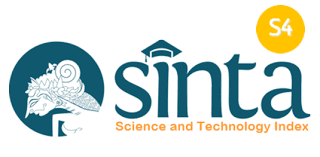Validasi Paradigma Lingkungan Baru (NEP) Masyarakat Dalam Konservasi Mata Air Secara Tradisional Berdasarkan Gender Equality: Sebuah Kasus di Manggarai – Nusa Tenggara Timur
DOI:
https://doi.org/10.21009/IJEEM.012.07Keywords:
New Environmental Paradigm, Gender Equality, Traditionally Spring ConservationAbstract
The aim of this research is to find out the validity of New Environmental Paradigm (NEP) scale to measure peoples paradigm and its relationship to traditionally spring conservation based on gender equality. This research used quantitative with survey method, involved 120 samples selected randomly from Manggarai. NEP instruments developed based on five dimension (limit to growth, anti anthropocentrism, fragility of nature balance, rejection of excemptionalism and possibility of eco crisis) consist of 60 items. For measuring traditionally spring conservation 17 items of instruments has been developed. The results of the research reveal that, 33 items of NEP instruments have high validity and 27 items were omitted because low validity. Whereas for traditionally spring conservation instruments, 11 items have high validity and 6 items were omitted because low validity. The reliability for NEP instruments is 0,910 (33 items) and for traditionally spring conservation is 0,773 (11 items). There is no mean difference for both NEP and traditionally spring conservation between male and female. Moreover there is five factors has eigenvalues >1,00 for NEP instruments, and its construct validity were confirmed that all factors loading which consist of 15 indicators are >0,30. After rotation with varimax method, it is found that 7 indicators have factor loadings >0,30 in more than one component, and so that 7 indicators must be omitted from measuring peoples NEP.






